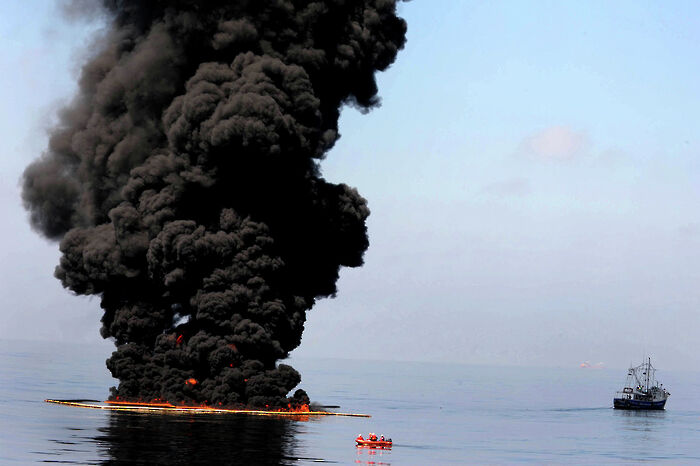Student quits working group over ‘sham’ divestment report
A leaked draft, which revealed the University working group’s proposals to continue to only partially divest, has been labelled a failure “to address the urgency of climate change”

Cambridge Zero Carbon Society has condemned a draft report by the University’s Divestment Working Group, saying that it “exposes a deeply anti-democratic and wilfully blind attitude amongst university management” toward divestment.
Alice Guillaume, a counsel to the society and its representative on the Divestment Working Group, resigned from the group yesterday in protest of the draft. Writing for Varsity today, Guillaume argues that the report “fails to address the urgency of climate change and the injustices it engenders”.
In response to Guillaume’s resignation from the Working Group, a spokesperson for the University of Cambridge thanked Guillaume for her “significant contribution to the Divestment Working Group”, praising that she “has given a strong voice to students” and that “it was with regret that [the University has] accepted her resignation”.
Zero Carbon has vowed “large-scale disruption” in response to the report, promising a march of “hundreds of students” on the University offices.
The draft report by the Working Group, which was leaked to Varsity, recommends that “the University adopts a position of partial divestment”. It proposes the following measures for the University of Cambridge:
- Adopt a position of partial divestment, as well as “a positive investment strategy and positive engagement with investment managers, policy-makers, and relevant sectors of industry”
- Sign up to the UN Principles for Responsible Investment and to join the Institutional Investment Group on Climate Change (IIGCC)
- For the University’s Investment Office (IO) to operate “with greater transparency in its actions and reporting”
- For the University to commit “now and for the future not to invest in the most polluting products of tar sands and thermal coal”, and to divest from any current holdings over which the University has direct control
- For 10% of the Cambridge University Endowment Fund (CUEF) to be invested explicitly in Environmental Social and Governance (ESG) funds, “in the expectation this percentage will rise over time”
- For the “small proportion” of the University’s investments under direct control to be invested “in [a] manner consistent with a carbon neutral future”
- Set up a Centre for Carbon Neutral Futures, tasked at a coordinator for research and policy on climate change
A University spokesperson told Varsity that the draft report leaked yesterday was not the most recent version of the report.
Cambridge Zero Carbon has criticised the proposal of an ESG fund as “small” and “vaguely-worded”, and regards its outlined measures as “cosmetic tinkering”. It argues that the decision of partial divestment is “no different to the commitment made two years ago by a previous working group”.
The University described “no holdings in tar sands companies and only negligible holdings in thermal coal companies” in a 2015 report on investment responsibility, claims which the University Council endorsed last week.
Zero Carbon has protested the University of Cambridge’s indirect investments in fossil fuel industries in recent months with a staged crime scene outside of the Investment Office, as well as a mock wedding of the University’s ties to Shell.
In a statement to Varsity, President of Cambridge Zero Carbon Society Eleanor Salter drew a link to the current dispute over staff pensions which has led to nationwide strike action at universities this month. Salter condemned “an unaccountable financial bureaucracy [as] hindering progressive change at Cambridge”, in regards to both “its attack on staff pensions” and “its unyielding determination to block divestment”.
Speaking to Varsity, University Councillor Umang Khandewal, who also sits on the working group, said: “The draft recommendations are in their preliminary stage, and do not reflect the values that the Group is aiming towards, having consulted widely across the University and related stakeholders beyond. The view that climate change is a real and pressing threat is shared by all members of the Group and we are committed to making a robust set of recommendations on the issue of divestment.
“As a student member of the group, I am encouraged and have full confidence in the Group and its recommendations, as well as commend its proactiveness in actively listening and responding to concerns.”
Dame Athene Donald, chair of the group, echoed Khandewal’s sentiments: “Membership of the divestment working group represented the full range of different viewpoints, all of which fed into our discussions and will factor strongly in the final report.
“The group has listened carefully to all views, both in our committee meetings and from those invited to our evidence gathering sessions.”
The Divestment Working Group’s report will be received by the University Council this May.
 News / Caius mourns its tree-mendous loss23 December 2025
News / Caius mourns its tree-mendous loss23 December 2025 Comment / Yes, I’m brown – but I have more important things to say22 December 2025
Comment / Yes, I’m brown – but I have more important things to say22 December 2025 News / Clare Hall spent over £500k opposing busway 24 December 2025
News / Clare Hall spent over £500k opposing busway 24 December 2025 Interviews / Politics, your own way: Tilly Middlehurst on speaking out21 December 2025
Interviews / Politics, your own way: Tilly Middlehurst on speaking out21 December 2025 News / King appoints Peterhouse chaplain to Westminster Abbey22 December 2025
News / King appoints Peterhouse chaplain to Westminster Abbey22 December 2025










